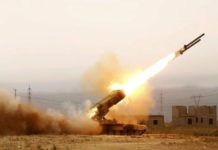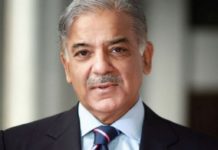By Muhammad Luqman
There is no let up in the tensions on Line of control in disputed Kashmir with the increase in the shelling by the Indian forces across the line that divides the former princely state between Pakistan and India. In a recent violation of the ceasefire agreement, the Indian forces killed two persons including a woman and injured many on the Pakistani side of Kashmir. This all happened on the day when Pakistan observed Kashmir solidarity day to express support to the struggle by the people of the valley against the Indian occupation.
India and Pakistan have fought three wars over Kashmir in 1948. 1965 and 1971 besides a battle in Kargil in 1999.
According to Pakistan’s Foreign Office, the Indian Deputy High Commissioner Mr. J.P. Singh was summoned to Foreign Office and condemned the unprovoked ceasefire violations by the Indian occupation forces along the Line of Control in Nezapir, Nikial and Karela Sectors, resulting in the shahadat of two innocent civilians (18 years old Rafaqat Ali r/o Kalar Gali village and 25 years old Tasleem Begum r/o Plani village).
The Indian forces along the Line of Control and the Working boundary are continuously targeting the civilian populated areas with heavy mortars and automatic weapons.
In 2018, the Indian forces have carried out more than 190 ceasefire violations along the Line of Control and the Working Boundary to date, resulting in the shahadat of 13 innocent civilians, while injuring 65 others. This unprecedented escalation in ceasefire violations by India is continuing from the year 2017 when the Indian forces committed 1970 ceasefire violations, the foreign office said.
The deliberate targeting of civilian populated areas is indeed deplorable and contrary to human dignity, international human rights and humanitarian laws. The ceasefire violations by India are a threat to regional peace and security and may lead to a strategic miscalculation.
The frequent ceasefire violations by Indian troops are witnessed, which is a serious breach of a truce signed between the nuclear armed arch rivals in the South Asian region in November 2003, according to ISPR, the media wing of Pakistan’s army.
Pakistan’s military and civil leadership has expressed solidarity with the Kashmiris living in the Indian-held Kashmir.
Pakistan’s Prime Minister Shahid Khaqan Abbasi while addressing the legislative assembly of Azad Kashmir on Kashmir Day, urged the Pakistanis and Kashmiris to maintain unity for the sake of the Kashmir cause.
Premier Abbasi said “we have to help our Kashmiri brethren by remaining united. With all our political differences aside, there is no second opinion in Pakistan on the Kashmir dispute. From civilian to military governments, there has been no difference in our Kashmir policy.”
“The Modi government of India has tried all measures but they know they cant finish the freedom struggle because every Kashmiri child is taking ahead the cause,” he said. “We know the pain of our brethren who are fighting against the occupiers for the last 70 years.”
Pakistan,s Army chief also warned that the Repression of Indian occupying forces can never suppress valiant spirit of Kashmiris, who rightfully await awakening of international community for plebiscite under UN resolution.
Analysts believe that durable peace can not be brought to South Asian region without the resolution of outstanding issues like Kashmir.















